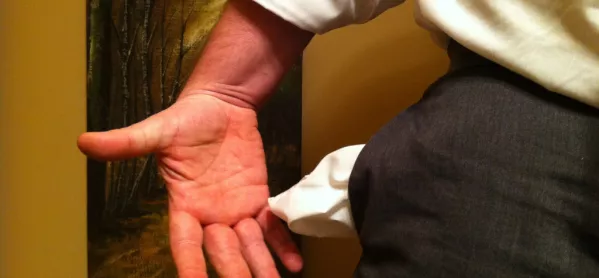Headteachers are stepping up their demands for bigger salary increases for teachers after it was revealed that the public sector pay cap will be lifted for police and prison officers.
Since 2013, pay rises for public sector workers, including teachers, have been capped at 1 per cent. But it has been confirmed today that police will receive a 2 per cent pay rise for 2017-18 - half of which is a one-off bonus - while prison officers will gain 1.7 per cent on average.
The government announced in July that teachers would only receive an overall 1 per cent pay rise in 2017-18, although those at the top and bottom of the main pay scale would see their salaries rise by 2 per cent.
However, there is a chance that a more generous pay deal could be on the cards for next year, after the Treasury said today that pay “flexibility” may be needed in some parts of the public sector from 2018-19.
Paul Whiteman, general secretary of the NAHT school leaders’ union, said that failing to include teachers in today’s pay announcement was “short-sighted and wrong”, due to ongoing recruitment and retention problems, which have been highlighted today in a report by the National Audit Office.
Mr Whiteman said: “In education the cap has harmed efforts to recruit and retain teachers and school leaders whose salaries have dropped by 16 per cent relative to inflation since 2010.”
Geoff Barton, general secretary of the Association of School and College Leaders, said that any increased flexibility over public sector pay was welcome but that the increases announced today for police and prison officers were still “well below inflation”. Inflation today hit a one-year high, at 2.9 per cent.
Better pay deal for teachers ‘long overdue’
Mr Barton said: “We believe it is essential that teachers are given a decent increase in the next pay round which addresses the years of real-terms cuts they have suffered.
“It is also essential that pay rises are funded from central government coffers rather than ministers continuing to expect schools to afford pay awards from declining budgets.
“People do not become teachers for the money. But they do expect fairness, and years of pay freezes and pay caps have left them feeling undervalued. They are long overdue a better deal.”
A separate report published today, by the Organisation for Economic Cooperation and Development, says that teachers in England saw their pay drop by 12 per cent in real terms between 2005 and 2015, while in other advanced countries pay rose by 6 per cent on average.
The NASUWT teaching union yesterday highlighted research showing that the average teacher only received a 0.6 per cent pay rise last year.
Kevin Courtney, joint general secretary of the National Education Union, said: “The pay cap needs to be lifted for all public sector workers if we are to protect our public services, which are an essential part of everyone’s daily life.
“The cap was not lifted this year for teachers and various other groups, resulting in pay being cut still further in real terms. We know that teacher supply is in crisis and, without sufficient teachers, the education of children will suffer. Giving teachers a fair pay rise is a crucial part of solving that problem.”
Want to keep up with the latest education news and opinion? Follow Tes on Twitter and like Tes on Facebook




